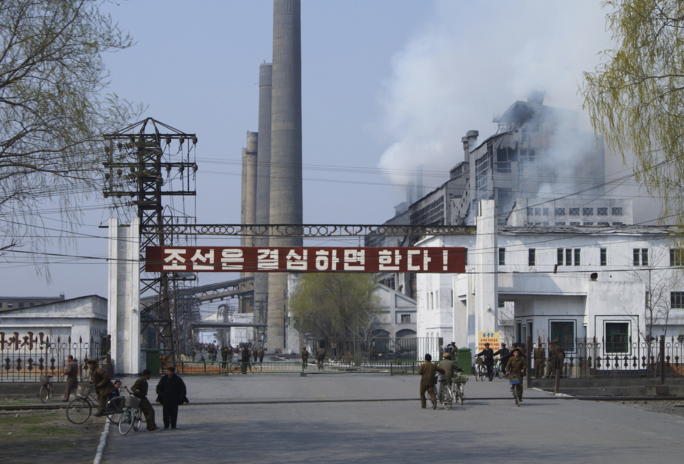North Korea's Nuclear Inspections
 The state-run “Rodong Shinmun” and North Korea’s only newspaper released an article last week that warned readers that North Koreans may have to prepare for another “arduous march, during which we will have to chew the roots of plants once again [to survive]”. According to the Worker’s Party, upcoming shortages of food and other supplies will come as a result of the extensive new sanctions levied against the socialist state in March 2016. The UN sanctions, which have signatories from the United States, China, and many other nations, serve as a response to North Korea’s fourth nuclear test in January of this year. They go deeper than any previous sanctions regimes against North Korea, requiring all cargo going in and coming out of North Korea to be inspected for materials that could potentially be allocated towards the country’s nuclear weapons program.
The state-run “Rodong Shinmun” and North Korea’s only newspaper released an article last week that warned readers that North Koreans may have to prepare for another “arduous march, during which we will have to chew the roots of plants once again [to survive]”. According to the Worker’s Party, upcoming shortages of food and other supplies will come as a result of the extensive new sanctions levied against the socialist state in March 2016. The UN sanctions, which have signatories from the United States, China, and many other nations, serve as a response to North Korea’s fourth nuclear test in January of this year. They go deeper than any previous sanctions regimes against North Korea, requiring all cargo going in and coming out of North Korea to be inspected for materials that could potentially be allocated towards the country’s nuclear weapons program.
Predictions about the potential effects the new sanctions could have on different sections of North Korean society are mixed. The most common criticism for sanctions as a tool of diplomatic strategy in general is that they too often hurt the citizenry of the states they are used against, while political leaders and members of elite circles are left relatively unaffected. However, Georgetown University Asian Studies Chair Professor Victor Cha estimates that the sanctions could have a significant effect even on the upper strata of North Korean society - if they continue to be implemented correctly. “I’m curious to see how [down the line], these sanctions could affect foreign tourists’ perceptions of Pyongyang,” he said, referring to the North Korean capital where most of the country’s wealth is stored and displayed. “When things in Pyongyang start to deteriorate, that’s how you know that the sanctions are really having an effect.”
Despite differences in predictions about which parts of the North Korean population will be most severely affected by the new sanctions, most experts agree that in order for them to be effective at all, inspectors in China, where sanctions against North Korea have rarely been enforced to their entirety, will play the most important role. Trade between the United States and North Korea has been sparse since the DPRK’s Cold War beginnings in the 1950s, so it is unlikely that eliminating what remains of a practically nonexistent trade relationship would have much of an effect on the Communist state. China, however, provides approximately 80% of imports to North Korea, including important intermediate goods such as fuel and machinery, as well as aid in the form of food and fuel. Trade between the two countries was over 6.86 billion in 2014, up from just over 500 million in 2000. However, as part of the new sanctions Chinese trade with North Korea could rapidly decrease, which could prove devastating to North Korea’s already stagnant economy. Like most negotiations with North Korea, there is little certainty as to the longevity or effectiveness of the latest round of sanctions. In the meantime, officials in the United States and around the world have little choice but to wait and see how their contemporaries in Pyongyang will react.
